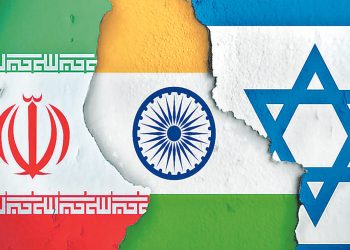The latest developments in the long process of negotiations between the government of Pakistan and the banned Tehreek-e-Taliban Pakistan (TTP), mediated and hosted by the Afghan government in Kabul, according to which, TTP has demanded to end the integration of tribal areas.
An important development is that for the first time, the government of Pakistan has officially acknowledged and negotiated peace talks with the banned TTP, and recent developments by the banned TTP have welcomed the indefinite extension of the ceasefire.
Yesterday, Federal Minister for Information and Broadcasting Marriyum Aurangzeb while addressing a press conference said that talks with TTP had started in 2021. The talks are taking place at the government level and the Afghan government is facilitating them.
The Federal Minister for Information said that the process of dialogue includes civil and military representation. He said that the ceasefire is welcome at the government level. Approval will be given by the parliament and the government.
According to analysts overseeing Pak-Afghan affairs, it is a significant development in terms of peace talks with the banned TTP that the government of Pakistan has formally confirmed talks with the banned organization. This indicates that the process of dialogue between the parties is moving in the right direction. Analysts say the government’s acknowledgment of the talks is in fact a reflection of optimism about the success of the talks and a sign that the parties are satisfied with the negotiation process. Had it not been for such a thing, there would have been some disruption in the negotiations or if the negotiations did not seem to be taking a decisive turn due to some complication, it was unlikely that the negotiations would be accepted by the government.
It should be noted that after the advent of Taliban rule in Afghanistan, the attacks of banned TTP by Afghanistan in the border areas of Pakistan had intensified and the situation was getting worse. The threat was that the TTP was gaining strength after the arrival of the Taliban in Afghanistan and that its attacks were becoming more intense and intense than before.
In this scenario, the Pakistani government repeatedly sent warning messages to the Afghan government, but the TTP continued its attacks regardless of the stakes between the two countries. The Afghan Taliban offered to mediate between the parties to resolve the issue and initially a letter and message was sent to the parties for reconciliation under the leadership of Afghan Interior Minister Khalifa Sirajuddin Haqqani, but the talks did not last long Soon the TTP launched another bloody offensive.
The breakdown in the negotiations, which began last year, came to light over time due to pressure on the parties, and a final decision was made to give the talks a chance to resolve issues.
The banned TTP also demanded the participation of tribal elders and clerics from North, South, and Waziristan, and Malakand divisions in the negotiation process to make the negotiations decisive. Started. The outlawed TTP demanded a ceasefire from the Pakistani government and the release of some of its captive leaders, which led to the release of TTP leaders like Muslim Khan and Mahmood Khan. In return for this confidence building, the TTP declared a ceasefire.
According to sources, representatives of South and North Waziristan have so far participated in several rounds of talks in Kabul. The South Waziristan delegation has returned home after the meeting and talks, while the rest of the delegations are continuing the talks as per schedule.
The latest developments include the demands of the banned TTP and the government of Pakistan, according to which the main and biggest demand of the TTP is to end the integration of the tribal areas (formerly FATA) into Khyber Pakhtunkhwa and the former status of the tribal areas that is the restoration of FATA (Federally Administered Tribal Areas).
Other demands of the banned TTP include elimination of military outposts from the tribal areas ie complete withdrawal of troops, elimination of cases against TTP workers across the country, and guarantee of prevention of US drone strikes in the tribal areas and system in the Malakand division. Justice is the implementation of the regulation.
On the other hand, the government of Pakistan has demanded that the banned TTP recognize the constitution of Pakistan, submit all illegal weapons, no weapons will be allowed without a license, and the TTP will not have any connection with ISIS. The last demand is the dissolution of the Tehreek-e-Taliban Pakistan (TTP).
Given the progress made so far in the talks, mutual trust-building, full participation of public, social, military, and government representatives and scholars in the negotiating committee, and the steps taken so far by the parties, analysts are hopeful that the talks will continue. If no dramatic change or major accident hinders, the Pak-Afghan border will soon be at peace and there will be a clear reduction in terrorism inside Pakistan.


































